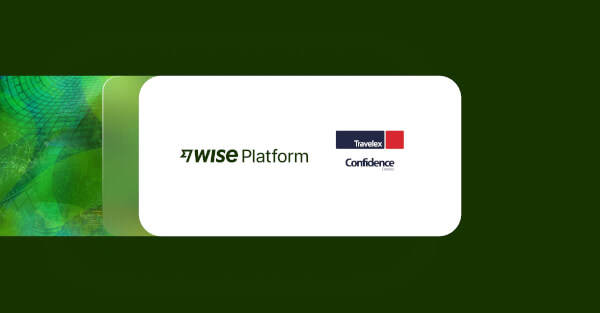Payment Processing Fees Guide for the UK
Understand payment processing fees in the UK. Explore types, costs, and how to choose the best payment solutions for your business.

Following a dip in business travel during the global pandemic, business travel to France, and other parts of the world is on the increase. This increase is shown in figures that reflect slightly higher levels of business tourism during 2021 after a 50% drop the previous year¹.
In contrast to leisure tourism, business travel is often a necessity rather than a choice. If your business trades with France, you may find yourself in a position where you or your employees need to spend time there.
The business is responsible for paying individuals while they’re working away and for the cost of the trip. So, if you own a business, or manage finances, making sure that business travel is well-planned and cost-effective is vital. Keep reading to find the information you need to make this happen.
| 📝 Table of contents: |
|---|
The trade relationship between the UK and France is significant, France was the UK's fifth largest trading partner during 2022, responsible for 5.4% of the UK’s overall trade².
Given the valuable trade relationship between the two nations, it’s not surprising that business travel to France is common for many organisations. If this is the case for your company, understanding the requirements to travel to France for business is essential.
If any employee of your business travels from the UK to France for work, they need to:
If you’re wondering if you need a visa for business travel to France, the good news is that you may not. France is in the Schengen area³, so you can travel for up to 90 days in a 180-day period for many business related activities. The 180-days is a rolling period.
Specific activities you shouldn’t need a visa for include:
The following people are also usually allowed to travel to France without a visa for 90 days or less:
| ⚠️ Attention: Any business intending to send an employee to provide a service in France must complete a SIPSI declaration.⁴ |
|---|
In some cases, you will need a visa to travel to France on business. You’ll need to apply for a short-term permit if you’re in France for up to 90 days and you’re:
You’ll need to apply for a long-stay work permit if you’ll be in France for more than 90 days and you’re:
The UK government also recommends that you check with the French embassy for any additional requirements, before you travel.
Managing business travel to France from the UK involves creating an itinerary, making sure you have the right documentation, booking travel and accommodation, and making sure you have currency to spend.
Your business can use travel management software or the services of a business tourism specialist. However you manage your business travel, there are four steps to consider.
When you, or any employee of your business, travels to France on business, you need to make sure your passport is valid. It must have an expiry date that’s at least three months after the date you’re due to leave France.
You don’t normally need a visa to travel to France for business for up to 90 days in a 180-day rolling period. This ruling is part of the Schengen area agreement and covers situations such as attending conferences, taking part in training, meeting clients, and negotiating deals.
If you’re travelling for more than 90 days, moving to work in France, providing services to a client, carrying out self-employed work, or conducting research, you’ll usually need to apply for a short-term or long-term permit, depending on whether your stay is for up to 90 days, or for a longer period.
You can check for more details on the UK government website⁵ and should also approach the French embassy to check for up-to-date requirements.
There are several transportation options available for someone travelling to France from the UK on business. You, or any representative of your business, can choose any of the following options:
Many business travellers prefer the plane option as it gives them a chance to use the business class lounges for work. These lounges have amenities like complimentary food and drink, free WiFi, workstations, and power outlets, making it easy for business travellers to be productive.
When booking travel, it’s worth knowing that expense apps like Concur integrate with air and hotel booking apps like Booking.com for business to make travel booking easier.
When booking accommodation to travel to France for work you can use expense tools like Zoho or choose one of the top business credit cards to get increased travel protection. If you’re booking accommodation, there are several aspects to consider:
Paying attention to these aspects allows you to have a productive and comfortable stay.
When anyone from your business travels to France on business, any spending is in Euros as that’s the local currency. So, you need to deal with currency exchange. The best tools for this include a business multi-currency account and multi-currency debit or credit cards.

Using tools like a multi-currency account makes it easier to manage international travel expenses. The process in place to manage these expenses usually follows the following steps:
Managing international travel expenses is easier if you use a debit card connected with a multi-currency account, such as Wise Business.
With Wise you or your employees always get the real mid-market exchange rate. You can open a Euro balance and easily convert from Pounds to Euros before spending, or use your Wise Business Debit Card to spend in Euros and your Wise account will convert the amount and debit it from your Pounds balance. Whichever is more convenient for you.
Spend in Euros easily with Wise Business.
Sign up today
If you or your employees are travelling to France on business, you’ll need an itinerary. An itinerary is a detailed plan of your trip schedule including the dates, times, and location for each activity. There are several reasons why an itinerary is vital for a business trip:
An example of an itinerary for a business trip to France could be:
Day 1:
9:00 a.m. Arrive Paris
9:30 a.m. Check in to hotel and freshen up
11:00 a.m. Attend a lunch meeting with clients
1.00 p.m. Tour of the client’s offices
5:00 p.m. Hotel and restaurant for dinner
Day 2:
9:00 am. Breakfast meeting with investors
10:30 a.m. Free time in Paris, visit to the Louvre
12:30 p.m. Lunch with the manager of the Paris office
2:00 p.m. Meeting with the marketing team
5:00 p.m. Hotel and restaurant for dinner
Day 3:
9:00 a.m. Breakfast meeting with clients
10:30 a.m Check out of hotel and travel to airport
2.00 p.m. Flight to the UK
You can amend an itinerary to take account of any changes to your plans. You may want to use tools like a mileage tracker and route planner to make your itinerary as realistic as possible. Some expense solutions like Xero include these tools.
When you’re planning a business trip for yourself, or anyone else representing your company, using a Wise Business multi-currency account helps you manage expenses in over 50 currencies.
The person travelling uses anemployee expense card to make purchases throughout the trip without worrying about conversion rates, since Wise always uses the real mid-market exchange rates.
France is one of the UK’s top trading partners, so business travel between the two countries is common. If you, or anyone from your company, is taking a business trip to France, you need to make sure all the necessary documentation and visas are in place.
You also need to pay attention to booking accommodation and transport as well as making sure purchasing in euros is possible. Using a Wise Account makes it easier to plan spending in euros and to manage travel expenses for any business trips to France.
Sources used:
Sources last checked 01/03/2023
*Please see terms of use and product availability for your region or visit Wise fees and pricing for the most up to date pricing and fee information.
This publication is provided for general information purposes and does not constitute legal, tax or other professional advice from Wise Payments Limited or its subsidiaries and its affiliates, and it is not intended as a substitute for obtaining advice from a financial advisor or any other professional.
We make no representations, warranties or guarantees, whether expressed or implied, that the content in the publication is accurate, complete or up to date.

Understand payment processing fees in the UK. Explore types, costs, and how to choose the best payment solutions for your business.

Read our comprehensive guide to the best business payment services in the UK, including Stripe, Square, GoCardless, Zettle, Braintree and Worldpay.

Get a complete overview of Shopify payment processing fees. Learn about costs, options, and tips to manage fees and optimise your profitability

Explore best practices in dunning management to reduce payment failures, improve cash flow, and retain customers with effective communication strategies.

Read our helpful guide to subscription payment gateway services in the UK, including how they work and a list of popular UK providers.

We are very excited to introduce our newest partnership in Brazil with Travelex Confidence, which becomes the first foreign exchange broker in the world to...